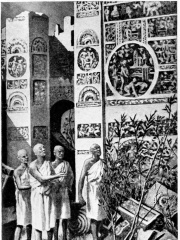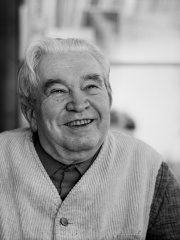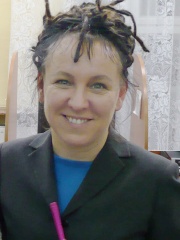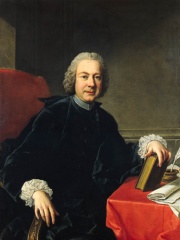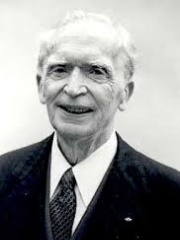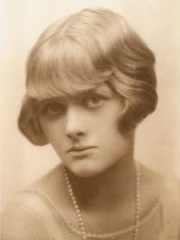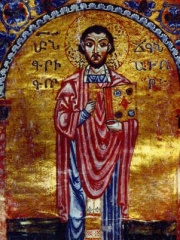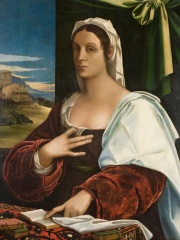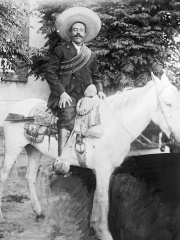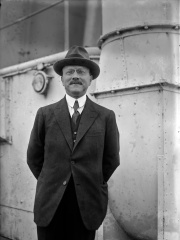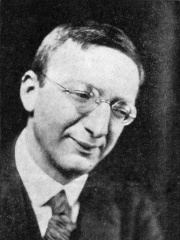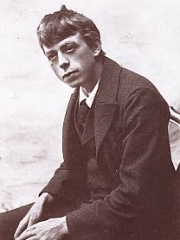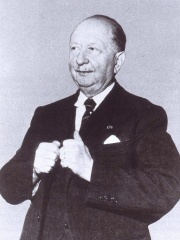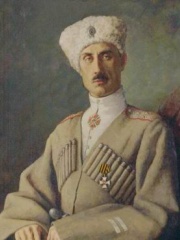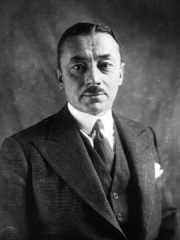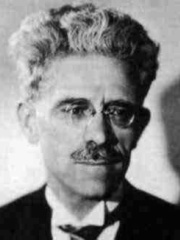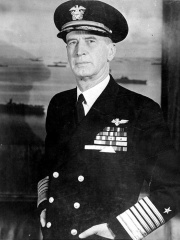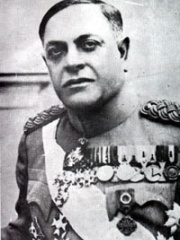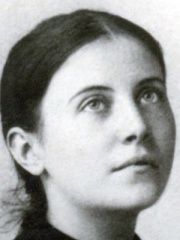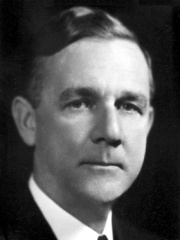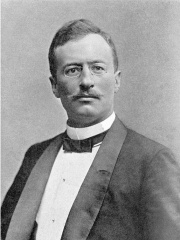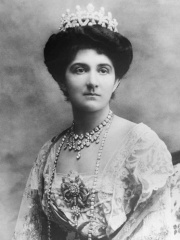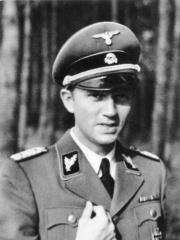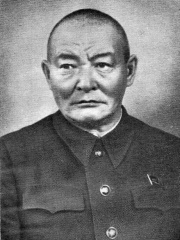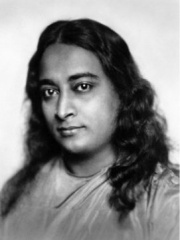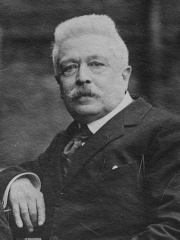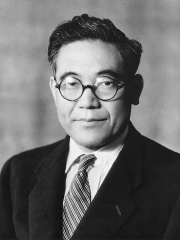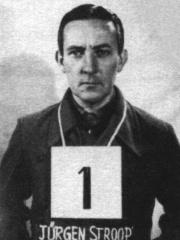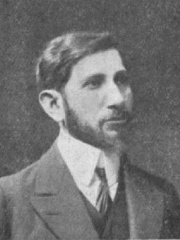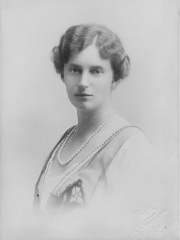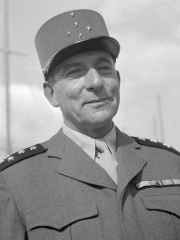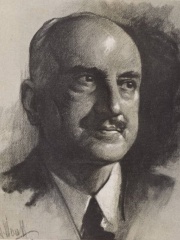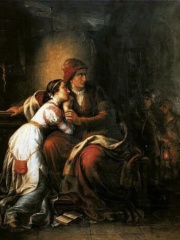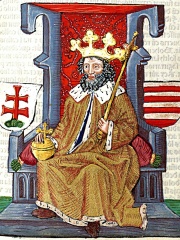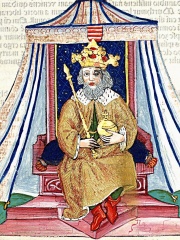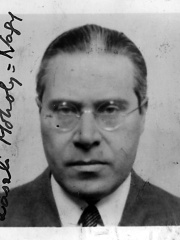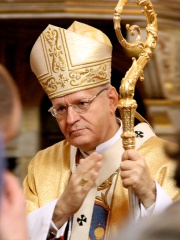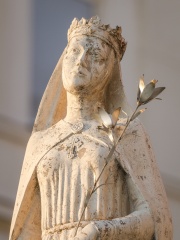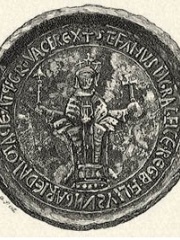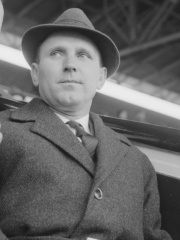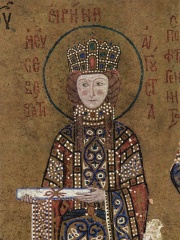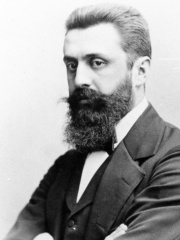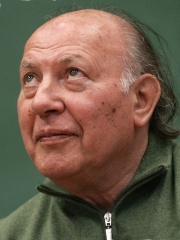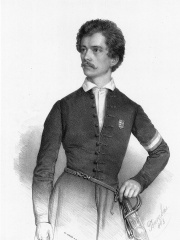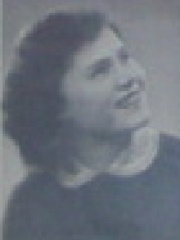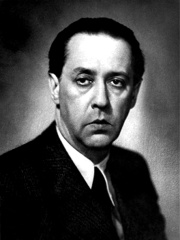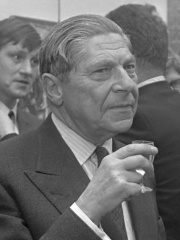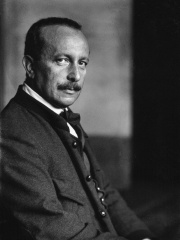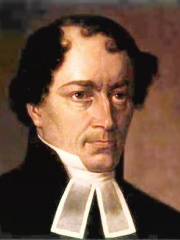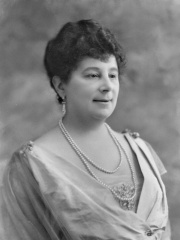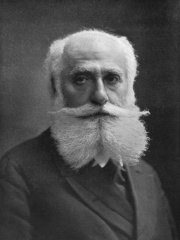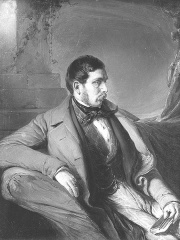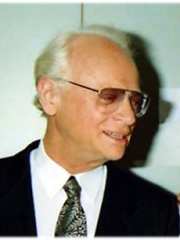WRITER
Ferenc Molnár
1878 - 1952
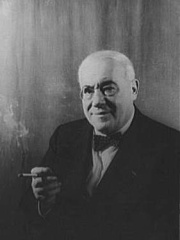
 Ferenc Molnár
Ferenc Molnár
Ferenc Molnár (US: FERR-ents MOHL-nar, -ənts -, - MAWL-, Hungarian: [ˈfɛrɛnt͡s ˈmolnaːr]; born Ferenc Neumann; January 12, 1878 – April 1, 1952), often anglicized as Franz Molnar, was a Hungarian-born author, stage director, dramatist, and poet. He is widely regarded as Hungary's most celebrated and controversial playwright. His primary aim through his writing was to entertain by transforming his personal experiences into literary works of art. While he never connected to any one literary movement, he did use the precepts of naturalism, neo-romanticism, expressionism, and Freudian psychoanalytic theories, so long as they suited his desires. Read more on Wikipedia
His biography is available in 38 different languages on Wikipedia (up from 36 in 2024). Ferenc Molnár is the 683rd most popular writer (down from 612th in 2024), the 82nd most popular biography from Hungary (down from 68th in 2019) and the 7th most popular Hungarian Writer.
Ferenc Molnár is most famous for his play Liliom, which is about a man who falls in love with a young woman who is engaged to another man.
Memorability Metrics
Page views of Ferenc Molnár by language
Among WRITERS
Among writers, Ferenc Molnár ranks 683 out of 7,302. Before him are Faxian, Jaroslav Seifert, Zecharia Sitchin, Olga Tokarczuk, Gerald Gardner, and Pietro Metastasio. After him are Joseph Murphy, Daphne du Maurier, Walter Raleigh, Frano Selak, Gregory of Narek, and Vittoria Colonna.
Most Popular Writers in Wikipedia
Go to all RankingsFaxian
340 - 418
HPI: 70.81
Rank: 677
Jaroslav Seifert
1901 - 1986
HPI: 70.81
Rank: 678
Zecharia Sitchin
1920 - 2010
HPI: 70.81
Rank: 679
Olga Tokarczuk
1962 - Present
HPI: 70.79
Rank: 680
Gerald Gardner
1884 - 1964
HPI: 70.79
Rank: 681
Pietro Metastasio
1698 - 1782
HPI: 70.79
Rank: 682
Ferenc Molnár
1878 - 1952
HPI: 70.78
Rank: 683
Joseph Murphy
1898 - 1981
HPI: 70.78
Rank: 684
Daphne du Maurier
1907 - 1989
HPI: 70.77
Rank: 685
Walter Raleigh
1554 - 1618
HPI: 70.77
Rank: 686
Frano Selak
1929 - 2016
HPI: 70.77
Rank: 687
Gregory of Narek
951 - 1003
HPI: 70.76
Rank: 688
Vittoria Colonna
1490 - 1547
HPI: 70.76
Rank: 689
Contemporaries
Among people born in 1878, Ferenc Molnár ranks 16. Before him are Pancho Villa, André Citroën, Alfred Döblin, Robert Walser, Lucien Febvre, and Pyotr Wrangel. After him are Paul Reynaud, Maurice René Fréchet, Ernest King, Milan Nedić, Gemma Galgani, and George Whipple. Among people deceased in 1952, Ferenc Molnár ranks 18. Before him are Sven Hedin, Elena of Montenegro, Walter Schellenberg, Khorloogiin Choibalsan, Paramahansa Yogananda, and Vittorio Emanuele Orlando. After him are Kiichiro Toyoda, Jürgen Stroop, Charles Maurras, Alexandrine of Mecklenburg-Schwerin, Jean de Lattre de Tassigny, and George Santayana.
Others Born in 1878
Go to all RankingsPancho Villa
MILITARY PERSONNEL
1878 - 1923
HPI: 73.45
Rank: 10
André Citroën
ENGINEER
1878 - 1935
HPI: 73.43
Rank: 11
Alfred Döblin
WRITER
1878 - 1957
HPI: 72.90
Rank: 12
Robert Walser
WRITER
1878 - 1956
HPI: 72.59
Rank: 13
Lucien Febvre
HISTORIAN
1878 - 1956
HPI: 71.88
Rank: 14
Pyotr Wrangel
NOBLEMAN
1878 - 1928
HPI: 71.33
Rank: 15
Ferenc Molnár
WRITER
1878 - 1952
HPI: 70.78
Rank: 16
Paul Reynaud
POLITICIAN
1878 - 1966
HPI: 70.36
Rank: 17
Maurice René Fréchet
MATHEMATICIAN
1878 - 1973
HPI: 70.25
Rank: 18
Ernest King
MILITARY PERSONNEL
1878 - 1956
HPI: 70.00
Rank: 19
Milan Nedić
POLITICIAN
1878 - 1946
HPI: 69.98
Rank: 20
Gemma Galgani
RELIGIOUS FIGURE
1878 - 1903
HPI: 69.83
Rank: 21
George Whipple
PHYSICIAN
1878 - 1976
HPI: 69.60
Rank: 22
Others Deceased in 1952
Go to all RankingsSven Hedin
EXPLORER
1865 - 1952
HPI: 72.34
Rank: 12
Elena of Montenegro
COMPANION
1871 - 1952
HPI: 72.19
Rank: 13
Walter Schellenberg
POLITICIAN
1910 - 1952
HPI: 72.14
Rank: 14
Khorloogiin Choibalsan
POLITICIAN
1895 - 1952
HPI: 71.97
Rank: 15
Paramahansa Yogananda
PHILOSOPHER
1893 - 1952
HPI: 71.62
Rank: 16
Vittorio Emanuele Orlando
POLITICIAN
1860 - 1952
HPI: 71.44
Rank: 17
Ferenc Molnár
WRITER
1878 - 1952
HPI: 70.78
Rank: 18
Kiichiro Toyoda
BUSINESSPERSON
1894 - 1952
HPI: 70.63
Rank: 19
Jürgen Stroop
POLITICIAN
1895 - 1952
HPI: 70.14
Rank: 20
Charles Maurras
WRITER
1868 - 1952
HPI: 69.94
Rank: 21
Alexandrine of Mecklenburg-Schwerin
COMPANION
1879 - 1952
HPI: 69.90
Rank: 22
Jean de Lattre de Tassigny
MILITARY PERSONNEL
1889 - 1952
HPI: 69.32
Rank: 23
George Santayana
PHILOSOPHER
1863 - 1952
HPI: 69.22
Rank: 24
In Hungary
Among people born in Hungary, Ferenc Molnár ranks 82 out of 1,077. Before him are Elizabeth of Bosnia (1340), Stephen II of Hungary (1101), Andrew I of Hungary (1010), László Moholy-Nagy (1895), Péter Erdő (1952), and Solomon, King of Hungary (1053). After him are Kinga of Poland (1224), István Sándorfi (1948), Stephen III of Hungary (1147), Nándor Hidegkuti (1922), Géza, Grand Prince of the Hungarians (940), and Irene of Hungary (1088).
Others born in Hungary
Go to all RankingsElizabeth of Bosnia
COMPANION
1340 - 1387
HPI: 71.25
Rank: 76
Stephen II of Hungary
POLITICIAN
1101 - 1131
HPI: 71.19
Rank: 77
Andrew I of Hungary
POLITICIAN
1010 - 1060
HPI: 71.07
Rank: 78
László Moholy-Nagy
DESIGNER
1895 - 1946
HPI: 71.06
Rank: 79
Péter Erdő
RELIGIOUS FIGURE
1952 - Present
HPI: 70.94
Rank: 80
Solomon, King of Hungary
POLITICIAN
1053 - 1087
HPI: 70.89
Rank: 81
Ferenc Molnár
WRITER
1878 - 1952
HPI: 70.78
Rank: 82
Kinga of Poland
RELIGIOUS FIGURE
1224 - 1292
HPI: 70.77
Rank: 83
István Sándorfi
PAINTER
1948 - 2007
HPI: 70.58
Rank: 84
Stephen III of Hungary
POLITICIAN
1147 - 1172
HPI: 70.57
Rank: 85
Nándor Hidegkuti
SOCCER PLAYER
1922 - 2002
HPI: 70.52
Rank: 86
Géza, Grand Prince of the Hungarians
POLITICIAN
940 - 997
HPI: 70.47
Rank: 87
Irene of Hungary
POLITICIAN
1088 - 1134
HPI: 70.36
Rank: 88
Among WRITERS In Hungary
Among writers born in Hungary, Ferenc Molnár ranks 7. Before him are Theodor Herzl (1860), Imre Kertész (1929), Sándor Petőfi (1823), Ágota Kristóf (1935), Sándor Márai (1900), and Arthur Koestler (1905). After him are Felix Salten (1869), Ján Kollár (1793), Emma Orczy (1865), Max Nordau (1849), Nikolaus Lenau (1802), and Ephraim Kishon (1924).
Theodor Herzl
1860 - 1904
HPI: 81.04
Rank: 1
Imre Kertész
1929 - 2016
HPI: 78.20
Rank: 2
Sándor Petőfi
1823 - 1849
HPI: 73.87
Rank: 3
Ágota Kristóf
1935 - 2011
HPI: 73.56
Rank: 4
Sándor Márai
1900 - 1989
HPI: 73.52
Rank: 5
Arthur Koestler
1905 - 1983
HPI: 71.91
Rank: 6
Ferenc Molnár
1878 - 1952
HPI: 70.78
Rank: 7
Felix Salten
1869 - 1945
HPI: 69.56
Rank: 8
Ján Kollár
1793 - 1852
HPI: 68.53
Rank: 9
Emma Orczy
1865 - 1947
HPI: 68.50
Rank: 10
Max Nordau
1849 - 1923
HPI: 66.70
Rank: 11
Nikolaus Lenau
1802 - 1850
HPI: 66.51
Rank: 12
Ephraim Kishon
1924 - 2005
HPI: 66.48
Rank: 13
